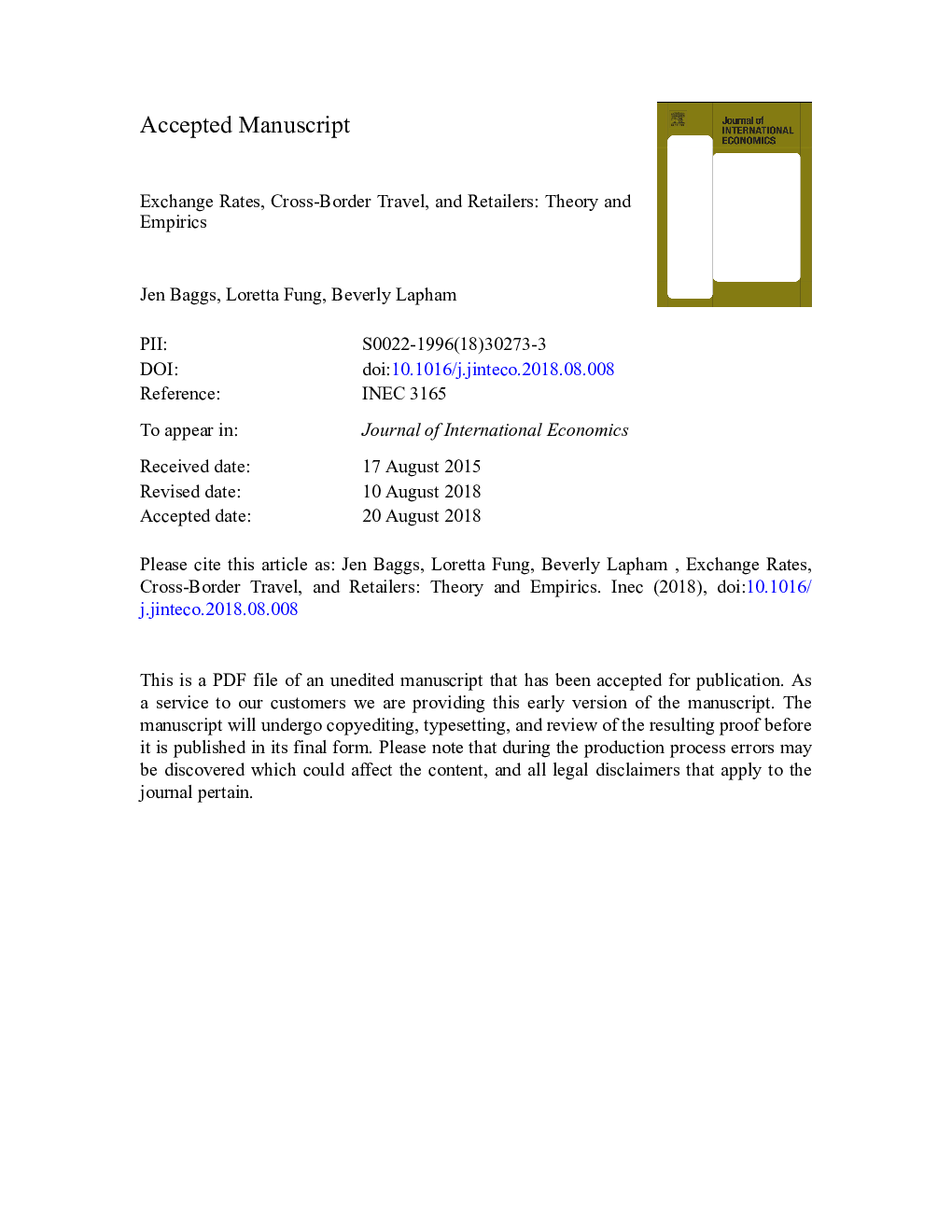| Article ID | Journal | Published Year | Pages | File Type |
|---|---|---|---|---|
| 10140474 | Journal of International Economics | 2018 | 112 Pages |
Abstract
This paper provides a theoretical and empirical analysis of the effects of nominal exchange rate movements on retail firms' sales, emphasizing the role of cross-border travel by consumers. We develop a search-theoretic model of price-setting heterogeneous retailers and traveling consumers who face nominal exchange rate shocks. These shocks affect retailers on the supply side, through imported input prices, and on the demand side, via their effect on the propensity for consumers to cross the border and shop at foreign retail stores. We use Canadian retailer and traveler data from 1986 to 2007 to estimate the model. Consistent with the model, the empirical results indicate that an appreciation of the Canadian dollar substantially increases Canadians' cross border travel which has a significant negative effect on the sales of Canadian retailers. These effects diminish with the distance to the nearest US shopping destination, relative population and the median income of the community in which the retailer operates. Using counterfactual experiments, we quantify the positive effects on Canadian retailers' sales of more restrictive border controls after September 2001, and the negative effects on those sales of increased Canadian duty free allowances and the expansion of US shopping opportunities.
Related Topics
Social Sciences and Humanities
Economics, Econometrics and Finance
Economics and Econometrics
Authors
Jen Baggs, Loretta Fung, Beverly Lapham,
